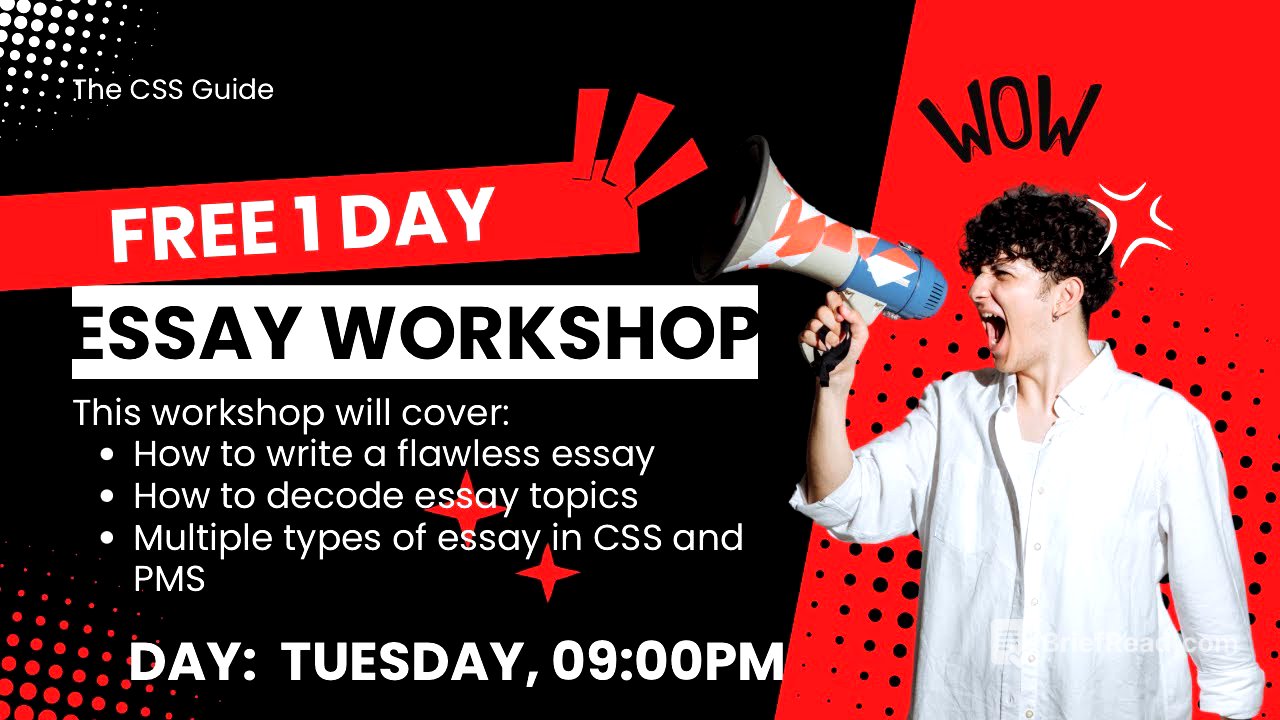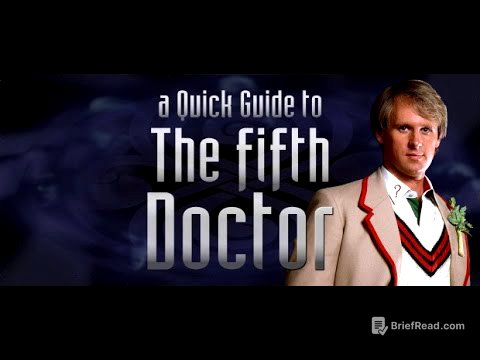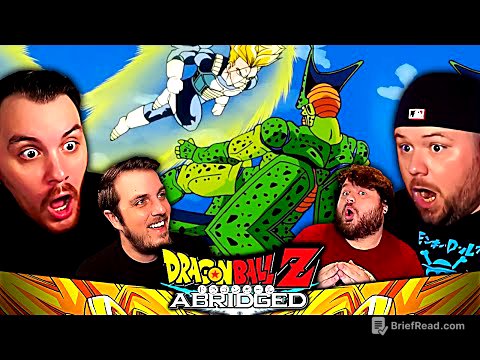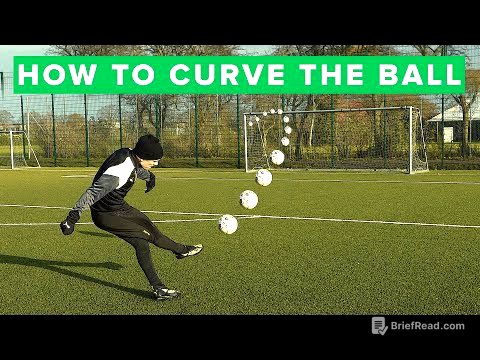TLDR;
This YouTube session provides a detailed guide on essay writing for CSS (Central Superior Services) exams, covering various essay types, outlining techniques, and smart study strategies. It emphasizes understanding the nuances of open-ended, close-ended, and relationship-based essays, along with practical tips for structuring arguments and enhancing scores.
- Understanding different essay types (open-ended, close-ended, relationship-based)
- Structuring effective outlines and arguments
- Smart study techniques for essay writing
Introduction [0:08]
The session begins with a welcome to all participants, highlighting the importance of the session for CSS exam preparation. It acknowledges the presence of numerous students and expresses enthusiasm for the interactive discussion.
Key Elements of Essay Writing [7:29]
The discussion covers essential elements of essay writing, including introductions, body paragraphs, and conclusions. It emphasizes the role of hooks to engage readers and the use of quotations or strong statements to introduce topics. The session also touches on the importance of topic sentences in each paragraph and the use of signposting to guide readers through the essay's structure.
Logical Connectors and Transitions [10:46]
The session explains the use of logical connectors such as "hence" to create coherence and flow in essays. It highlights the importance of linking paragraphs to the thesis statement and using transitional words like "secondly," "thirdly," and "moreover" to add depth and continuity.
Open-Ended vs. Close-Ended Essays [21:22]
The session distinguishes between open-ended and close-ended essays, noting that open-ended essays require abstract or general ideas that need elaboration and argumentation. In contrast, close-ended essays focus on specific topics requiring a clear, concise argument supported by facts and examples.
Relationship-Based Essays [37:36]
The session introduces relationship-based essays, which require connecting two different concepts within the essay. Examples include "Global Trade and Trade Policies of China" and "Gender Equality and Economic Growth," emphasizing the need for an interlinked relationship between the concepts.
Characteristics of Relationship-Based Essays [46:27]
The discussion highlights that relationship-based essays should have both independent concepts and an interlinked relationship. This means that changes in one concept should impact the other, creating a clear connection throughout the essay.
Outlining Techniques [57:35]
The session provides guidance on outlining techniques, using "Global Trade and Trade Policies of China" as an example. It suggests including points such as globalization and access to markets, area disputes and tariff adjustments, and the influence on emerging markets.
Human Development and Economic Sustainability [1:02:57]
The session touches on the topic of "Human Development and Economic Sustainability," discussing the impact of human development on economic sustainability and vice versa. It also addresses the challenges in achieving both, emphasizing the need for an optimistic and cooperative approach.
Recall of Essay Types [1:04:46]
A quick recap of the three essay types—open-ended, close-ended, and relationship-based—is provided to reinforce understanding. The session reiterates the flexibility of open-ended essays and the importance of interlinked relationships in relationship-based essays.
Smart Study Techniques [1:08:51]
The session introduces smart study techniques for essay writing, advising students to gather content from YouTube videos, Netflix documentaries, articles, and research papers. It suggests focusing on general terms, socioeconomic contexts, policy and governance, and contemporary issues.
Innovative Approach to Essay Writing [1:18:37]
An innovative approach to essay writing is presented, encouraging students to use keywords related to education, policy, and governance. The session emphasizes solution-oriented approaches and avoiding redundant words.
Climate Change as a Topic [1:22:34]
The session discusses climate change as a potential essay topic, highlighting its widespread impact on ecosystems, economies, and human survival. It suggests structuring the essay with a clear thesis statement and outlining the environmental, socioeconomic, and human healthcare impacts.
Argumentative vs. Expository Essays [1:24:07]
The session differentiates between argumentative and expository essays, noting that argumentative essays aim to persuade, while expository essays explain a topic. It categorizes different types of essays under these broader umbrellas.
Philosophical Essays [1:26:22]
Philosophical essays are described as requiring a literature background and a deep understanding of previous concepts and innovations. The session advises students to be cautious when choosing philosophical essays due to the high risk involved.
Connecting Paragraphs [1:30:06]
A question is raised about connecting two paragraphs, and the session emphasizes the importance of logical flow and coherence.
Limiting the Scope of Argumentative Essays [1:32:16]
The session advises limiting the scope of argumentative essays by focusing on specific aspects, such as the impact of climate change on health, and further narrowing it down to women's healthcare or children's health.
Risk Assessment for Essay Selection [1:33:00]
The session discusses the risk associated with choosing philosophical essays, advising students to assess their strengths and weaknesses before making a decision. It notes that while philosophical essays can be risky, they can also lead to high scores if well-executed.
Essay Length and Structure [1:35:04]
The session recommends writing essays with a minimum of six to eight paragraphs, including an introduction and a conclusion.
Final Thoughts and Aspirations [1:36:09]
The session concludes by encouraging students to focus on sentence and paragraph writing and to engage in extensive reading. It expresses hope for the students' success and thanks them for their participation.









